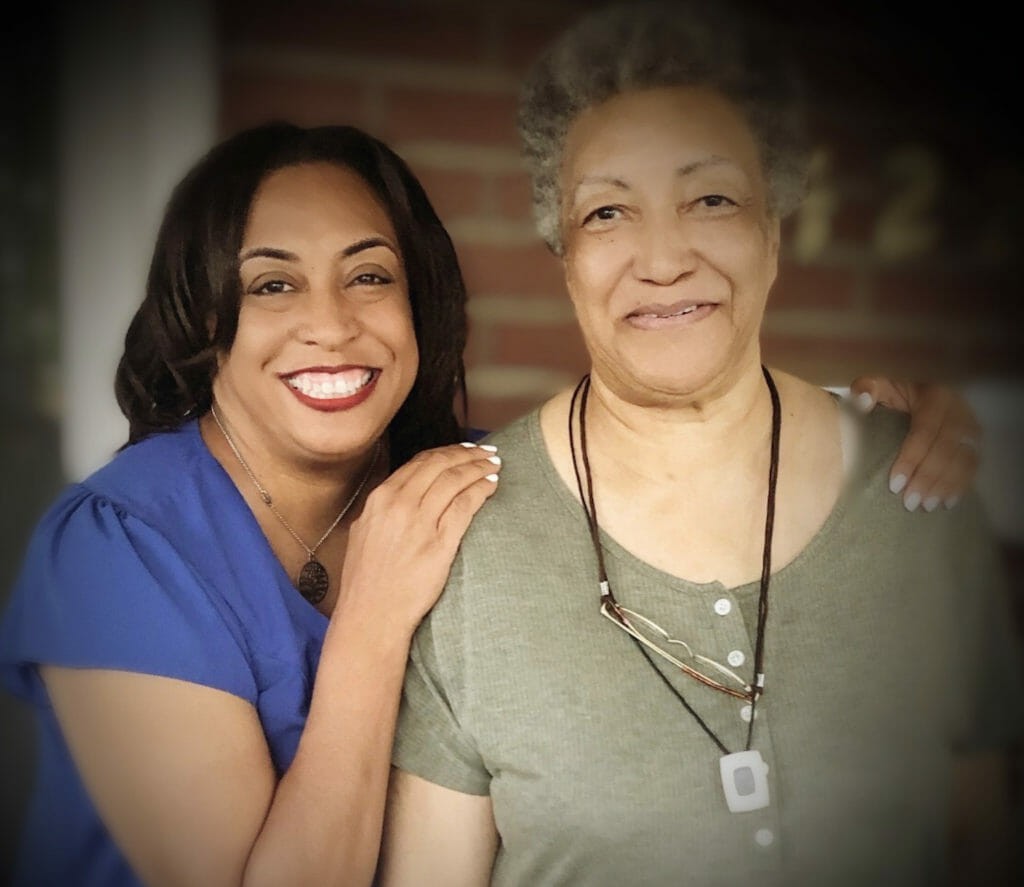
For Bernice Greene, finding the Senior LIFE Program of All-inclusive Care for the Elderly (PACE) program was “just like a miracle from God.”
“I normally don’t talk this way,” said Greene, an upbeat 72-year-old who lives alone in her home in Allentown, PA. “It’s such a big thing for me. They just showed up with all this good stuff. I don’t have to pay a penny for it.”
All this “good stuff” includes everything from weekly visits to the PACE center for socialization and therapy, to eyeglasses, monthly nurses visits and conversations with a Christian counselor.
Her only daughter, Dyeco (pronounced Din-E-co) Gibson, feels the same way.
“It’s one agency paying attention to what that person needs and figuring all the people who can service the person in their home in a way that is not so disruptive,” she told McKnight’s Home Care Daily Pulse.
Pandemic security
The Lehigh Valley PACE program, which her mom joined in October 2019, could not have come up at a better time, Gibson said, with the pandemic lurking around the corner.
“If it weren’t for Senior LIFE, for weeks at a time, there was no having physical eyes on [seniors],” said Gibson, who lives an hour and a half away from her mom by car. “That was a big piece for me, because I was doing my best to social-distance and make sure I didn’t expose my mom to anything … It was great for me that Senior LIFE was still able to check in on her and give her what she needed.”
Providing comprehensive care to help seniors live independently has been the credo of PACE since it began in the early 1970s. As of 2017, there were a total of 122 PACE programs in 31 states. To be eligible, individuals must be age 55 or older, live in the service area of a PACE organization, be eligible for nursing home care and be able to live safely in the community. The federal and state programs, Medicare and Medicaid, fund PACE.
Julia McCormick is Greene’s social worker for the Lehigh PACE. Everyone who joins PACE is assigned a social worker, nurse, doctor, physical, physical, occupational and speech therapist and registered dietitian.
“There is so much teamwork, so much communication,” McCormick said. “That’s why everything is under one roof, because we all work together as a team.”
Hope restored
When Greene joined pace in 2019, she was looking for additional care and had called around to various places, she and her daughter told McKnight’s Home Care Daily Pulse. But her monthly income of $2,300 disqualified her for assistance. Then Greene, who had worked for 29 years as an office worker, received a call that she mistakenly thought was a robotic call.
“Your information came across my desk,” she recalled the person saying.
It changed everything for Greene.
“God just put them in my way,” she said.
McCormick noted that outreach coordinators typically identify eligible seniors for the program. If the individual expresses interest, the outreach coordinator will bring them in for a tour and an assessment — or, if necessary, go to the person’s home. Then an individualized care plan is created. That care plan is taken back to individual and is reviewed with them.
Greene and Gibson like their involvement in PACE decisions. When Greene was struggling with anxiety during the pandemic, PACE offered to give Greene some medication and a counselor to help her. Gibson suggested a Christian counselor. The program took that into consideration and found the right fit for Greene from a contracted therapy provider.
“It’s not a cookie-cutter thing where they’ll give someone on the top of her list but someone who can connect with Bernice in a spiritual way,” Gibson said.
PACE also has helped Greene through emergency gallbladder surgery in June 2020 and knee surgery a couple of months later. After her gallbladder surgery, PACE arranged for her to come home from the hospital in a wheelchair and have a portable toilet. Someone also visited her three times a day to make sure she had breakfast, lunch and dinner.
“I had too much food,” Greene said.
Following Greene’s gallbladder surgery, PACE arranged for a telehealth visit so she did not have to go into the office.
All this helped provided peace of mind for her daughter.
“It took away a lot of the stress trying to figure out what she would need, because it wasn’t anything we had any experience with,” Gibson said. “They helped us map out the next few weeks of how we’d get her moving and scar and stitches taken care of.”
McCormick finds the work rewarding.
“We have a team who care about the individuals we serve,” she said. “This is why we’re in the field we’re in — to help people. But it’s really unique because we almost become a Senior LIFE family. We know so much about the people and are involved in almost every aspect of their life, that it’s a special relationship.”
Greene and Gibson agree.
“We just absolutely love them,” Gibson said.
Editor’s note: Home Sweet Home is a feature appearing Mondays in McKnight’s Home Care Daily Pulse. The story focuses on a heartwarming, entertaining or quirky happening affecting the world of home care. If you have a topic that might be worthy of the spotlight in Home Sweet Home, please email Liza Berger at [email protected].


